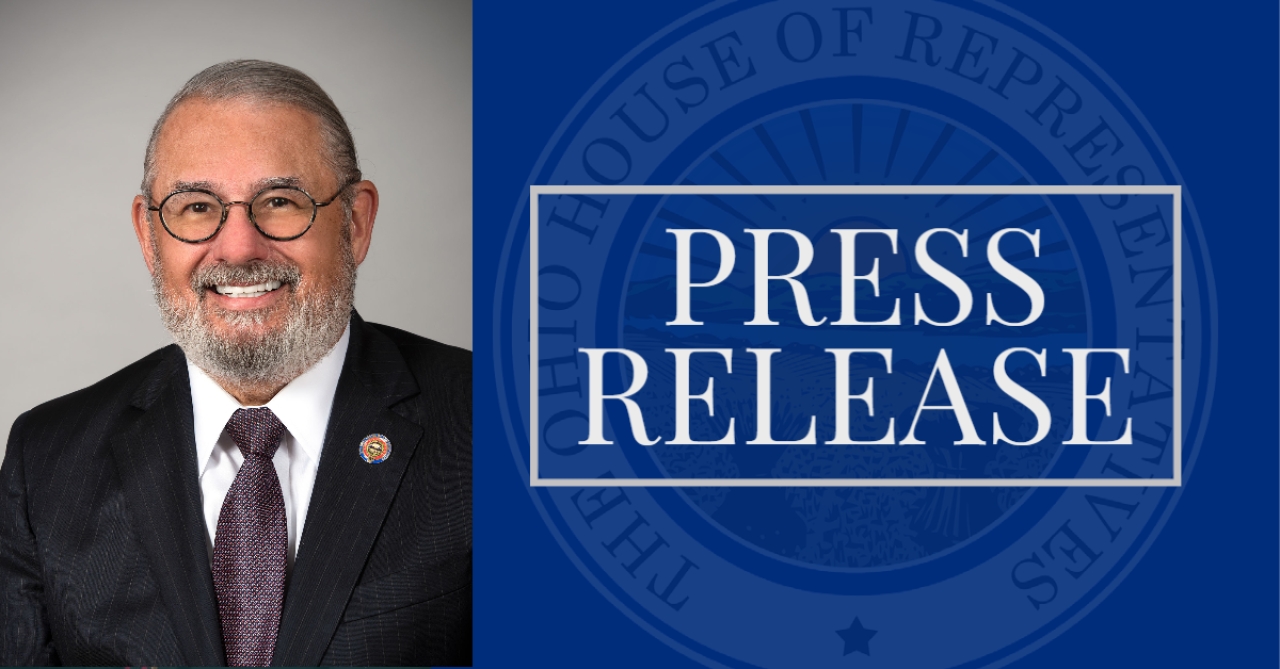Representatives Callender and Sweeney Provide Sponsor Testimony on Bill to Expand Medigap Coverage

COLUMBUS–The House Insurance Committee yesterday held sponsor testimony on House Bill 400, announced bill sponsors, State Representatives Jamie Callender (R-Concord) and Bride Rose Sweeney (D-Westlake). House Bill 400 aims to extend Medigap coverage to patients in Ohio diagnosed with End Stage Renal Disease (ESRD) and Amyotrophic Lateral Sclerosis (ALS). While ESRD and ALS patients are federally eligible to receive Medicare Part B Coverage, Ohio does not allow them to purchase Medigap coverage.
Currently in Ohio, there are approximately 27,000 ESRD patients and 1,100 ALS patients. With treatment, ESRD patients have a life expectancy of approximately 5–10 years while ALS patients have a life expectancy of 2-5 years. According to the ALS foundation, it costs approximately $90,000 in out-of-pocket expenses to cover the cost of caring for a person with ALS. For ESRD patients, it can cost as much as $500 per dialysis session, with many patients needing multiple sessions per week, on top of the other medical costs associated with treating ESRD.
“People living with ALS shouldn't have to spend their limited time focused on fighting insurance and losing sleep worrying about the medical debt they’re going to leave behind,” said Kara Nett Hinkley, Vice President of State Policy at The ALS Association. “Instead, they should get to focus their last months and days on family, their friends, the things that really matter. Policymakers can make Ohio the 18th state to enact similar protections so that no Ohioan living with ALS is left without affordable Medigap options when facing this devastating terminal illness.”
By extending Medigap coverage to ESRD and ALS patients, it would eliminate the often-crippling financial burden these diseases place on families. Medigap coverage, also known as a Medicare supplement insurance plan, is an additional insurance plan that can be purchased to assist with covering expenses not paid by Medicare. This can include things like co-payments, co-insurance costs, and deductibles.
“This critically important bipartisan legislation will help around 2,600 under-age 65 Ohioans with End Stage Renal Disease who are covered by Medicare, but not on the state’s Medicaid program,” said Hrant Jamgochian, J.D., LL.M, CEO of Dialysis Patient Citizens. “Dialysis patients deserve to be treated equitably—no matter their age—with access to affordable Medigap coverage, which provides access to life-saving kidney transplantation and helps families struggling with ESRD to avoid medical bankruptcy in order to afford their medical care. We urge the swift passage of HB 400.”
Nationally, 12% of all Medicare enrollees are eligible due to a long-term disability rather than age. 16 other states have already adopted similar legislation to extend Medigap Coverage to ESRD and ALS patients. Actuarial analysis from the Health Management Associates commissioned by Dialysis Patient Citizens indicates that expanding Medigap coverage to 2,672 under age 65 Ohioans with ESRD would only lead to a 0.5% increase in premiums, taking the monthly payment from $188 to $189.
“Every year, hundreds of families here in Ohio receive the crushing news that their loved one has been diagnosed with a terminal disease,” said Callender. “By removing the additional burden of potentially crippling medical debt, friend and family will be able to focus on the things that matter, spending time with their loved one and ensuring quality of care.”
“HB 400 doesn’t just make sense for the patients and families impacted by these heartbreaking diagnoses, it makes sense for Ohio taxpayers too,” said Sweeney. “This bill takes a measured, fiscally-sound approach by which we can offer support to terminally-ill patients and families in need, without forcing people to join the Medicaid rolls or overburdening the private insurance system.”
House Bill 400 now awaits proponent testimony in the House Insurance Committee.







